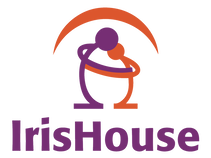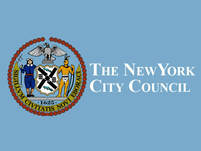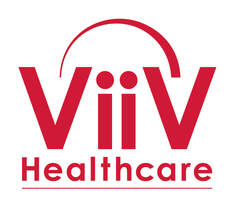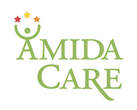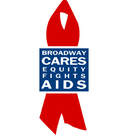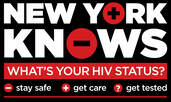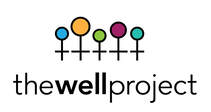Our Thoughts, Our Voices, Our Time
14th Annual Women as the Face of AIDS Summit
14th Annual Women as the Face of AIDS Summit
|
Monday, May 6, 2019 Bethel Gospel Assembly 2 East 120th Street, New York, NY 10035 7:45 AM Continental Breakfast 8:30 AM Morning Plenary Session Opening remarks, Ingrid Floyd, Executive Director Update on Women, Girls and HIV, Theresa Mack, MD, MPH, St' Luke's Medical Group 9:45 AM Breakout Session I Collective Storytelling for Great Impact Tiffany Smith, Thana-Ashley Charles, and Kate Locke, TCC Group; Sophia Kass, Transgender Law Center Stories are a part of our bones. They are rooted deeply in our human history and have recently re-surged in the mainstream media as one of the most powerful tools for connecting with people on an emotional level and motivating a change of hearts, minds, and actions. How do we tell great stories? What are the elements of a great story? How can we move our voices into a collective of stories for advancing social change? How can we use a trauma informed approach in how we tell our story? How can we understand the impact of storytelling on the people who tell them, communities, and movements? The purpose of this session is to break down the elements of a story, deconstruct powerful stories, and connect participants with their own natural sense of their personal story as a part of collective action and change. The session will be designed to achieve the following outcomes with participants: 1) Increased knowledge of the arc of a story 2) Greater confidence in telling one’s own story 3) Increase ability to demonstrate impact of storytelling and raising our collective voices, on the individual, community, and society. Developing a Comprehensive Health Program for Women of Transgender Experience living with HIV/AIDS Within Medicaid Managed Care: Best Practices and Lessons Learned Al Rubenstein, Transgender Health Program Coordinator, Amida Care, Rachel Luscombe, BSN, RN, Transgender Program Clinical Liaison, Amida Care, Monique Mackey, Health Navigator, Amida Care, Octavia Lewis, MPA, Community Ambassador, Amida Care This panel describes the experience of Amida Care developing and implementing a program to provide access to services for women of transgender experience living with HIV/AIDS. In It Together: Improving HIV Health Literacy for All Moya Brown-Lopez, MS, MPH, MCHES, Trainer, JSI Research & Training Institute The purpose of this workshop is to help participants improve their capacity to deliver health literate HIV services, with a particular focus on health services provided to racially, ethnically, culturally, and linguistically diverse people living with or at risk for HIV. Expected outcomes are to provide skills-building training that meets the health literacy needs of people with or at risk for HIV and to help health professionals and service providers provide health literate services to diverse communities. Sippin’ & Spillin’: An Innovative Approach to Engaging Women of Color in HIV Prevention Services Omotayo Balogun, PrEP Specialist, Ryan Health|West 97th Street and Janelle Eradiri, PrEP Specialist, Ryan Health| NENA Since the FDA’s approval of Truvada as PrEP in 2012, many HIV prevention campaigns have primarily focused on increasing PrEP awareness amongst men who have sex with men (MSM). Unfortunately, these targeted PrEP campaigns have created a false narrative among society that PrEP is only for MSM—leaving women (of color) out of the conversation. Sippin’ & Spillin’ was created in response to the HIV epidemic amongst cisgender and transgender black women—recognizing a huge disparity in the lifetime risk of HIV infection for these populations (1 in 54 for cisgender black women and 1 in 2 for transgender black women) in comparison to their cisgender white women counterparts (1 in 941). The Sippin' & Spillin’ presentation will highlight the need for culturally sensitive PrEP interventions, that prioritize women of color—specifically black women. The audience should leave this presentation with the tools needed to implement best practice interventions tailored to women who have the greatest risk of HIV infection. StoryCorps and the Legacy Program: Building Community Engagement through Storytelling Projects Maura Johnson, Community Training Program Specialist, StoryCorps StoryCorps, the national oral history project, started their Legacy Program in 2010 with the goal of providing people of all ages with serious illness, their families and caregivers the opportunity to record, preserve, and share their stories. Since then, Legacy has partnered with over 50 healthcare organizations across the country, including hospitals and clinics, pediatric centers, hospice and palliative care departments, and cancer centers. In this session, StoryCorps Legacy staff will discuss how attendees can reflect on their experiences and engage with their community through storytelling and sharing. Attendees will also learn about how past StoryCorps partner organizations have embedded storytelling in their work through the StoryCorps Legacy program. Support and Hope: Helping Women Living with HIV who are Isolated by Geography and Circumstances. Pat Kelly, President & Director, A Family Affair, Marlena Richardson, Vice-Chair, A Family Affair The purpose of this session is to inform attendees about the significance of support groups, particularly support groups that can address the needs of women living with HIV residing in rural communities or house-bound in homes in urban communities. The Power of Collaboration in a MCO/CBO Partnership: Using Peer Navigators to Reengage Virally Unsuppressed Plan Members in HIV Care and Treatment Jamila Allen, Director of Outreach & Linkage to Care, Alliance for Positive Change; Erin McKinney-Prupis, Assistant Director of Evaluation; Alliance for Positive Change; Zoraida Requena, Outreach and Linkage to Care Peer Navigator, Alliance for Positive Change Participants will be able to identify key components in effective partnerships between a Managed Care Organization (MCO) and Community Based Organization in promoting linkage to care for HIV+ MCO members chronically lost to care and treatment. Participants will be able to identify key training topics and methods for Peer Navigators to enhance Peer skills in outreach and patient navigation, to promote successful reconnection of HIV patients to medical care and treatment. CBO program administrators will learn practical considerations for how to partner and/or contract with an MCO to design contracts that are both programmatically effective at improving member health and fiscally viable. Valuable Assets: Eliciting Peer Perspectives to Revise an HIV Self-management Curriculum Amanda Raker, MPH, Implementation Specialist, New York City Department of Health and Mental Hygiene To describe a peer-led, inclusive process for updating a health education and self-management curriculum designed for People Living with HIV (PLWH). This process highlights the implementation and execution of a quality management project driven by HIV-positive peers who deliver the curriculum. The presenter will describe the project, identify curriculum changes, illustrate lessons learned, and lead an interactive discussion to discuss how participants of this session can use peers in their design and implementation of their programs. 11:00 AM: Breakout Session II A Girl Like Me: Building Community and Advocacy Through Blogging Masonia Traylor, Community Advisory Board, The Well Project; Gina Brown, MSW, Community Advisory Board, The Well Project and Kristal Martel, Executive Director, The Well Project This workshop will highlight the impact that online communities, specifically A Girl Like Me, can have in decreasing stigma by creating a multicultural network of PLWHV. A Girl Like Me, a program of The Well Project, is a blog where women from diverse backgrounds (geographic, socio-economic, race, age, sexual orientation, religion, etc.) share their experiences, find commonalities, and create a vibrant community of support and advocacy. A Girl Like Me has been an important first step into advocacy for many women living with HIV, enabling them to find a platform to reach people around the world and go to become well-known women advocates. The workshop will share data about the impact of A Girl Like Me on women who access the blogs, as well as on the more than 80 bloggers from around the U.S. and globe. A Recipe Book with a Story- Sabor Latino Rosa Alva, LCSW, Elmhurst Hospital, Joseph Dukeman, BBA, Creative Events Director, Nivarda Xique, Ana Bustamante, Mara Guzman, Luz Perez, Francisca Escamilla Share how peer inclusive programs can empower patients to take control of their care and improve adherence and engagement in care as well as strengthen the relationships between patient and their providers. New York City Department of Health and Mental Hygiene’s Black/African American and Latina Women Workgroup Uses Community Engagement to Improve Ryan White Part A services Kristina Rodriguez, MPH, Project Coordinator in Quality Management and Technical Assistance at New York City Department of Health and Mental Hygiene, Sahani Chandraratna, MPH, MSW, Quality Management Specialist in Quality Management and Technical Assistance at New York City Department of Health and Mental Hygiene, Nadine Alexander, ScM, Evaluation Specialist in Research and Evaluation at Department of Health and Mental Hygiene, Octavia Lewis, Community Ambassador at Amida Care and Member of the NYC DOHMH Black and Latina Subcommittee Objective: As Black/African American and Latina women living in New York City (NYC) continue to be disproportionately affected by HIV, there is an ongoing need for effective HIV prevention and care interventions that are tailored to address their specific risk factors and needs. Through a community partnership with providers, and Black/African American and Latina women living with and receiving HIV services, the New York City Department of Health and Mental Hygiene (NYC DOHMH) has created a workgroup that is committed to researching, identifying, and addressing the unmet needs of Black/African American and Latina cisgender women living with HIV in NYC. Facilitation Skills: Building Ourselves as Women Leaders in Shared Spaces Vanessa Johnson, Ribbon Consulting Group, LLC, Emily Klukas, Debika Shome, and Tiffany Smith, TCC Group The impetus for this session was sparked by ongoing conversations with women living with HIV, and those serving women living with HIV, who have described a convergence of experiences – 1) challenges engaging WLHW in online groups, 2) a baseline need and interest in the topic considering the evolving landscape and the infusion of new co-conspirators in the work, 3) the acknowledgement that effective facilitation is key to amplifying voices for meaningful engagement and sustained participation, and 4) the power of facilitation to build women’s opportunities, leadership and confidence in a variety of settings. Effective facilitation is an important skill that can be developed over time, with training, practice, mentorship and feedback. The session will be designed to achieve the following outcomes with participants: 1) Increased knowledge of facilitation and meeting design best practices grounded in the values of democracy, elevating voices, and making meaningful decisions to improve the lives of people living with HIV. 2) Greater understanding of how strong facilitation skills can lead to increased capacity to serve as an effective leader. 3) Stronger skills in leading discussions and meetings with a diversity of personalities. GLOW For Me: Anatomy to Sexuality Linda H. Scruggs, Yolanda Diaz, Dottie Rains Lets discuss some basic information that should have been given to all women before engaging in sexual activity. During this interactive session, cis-women will explore, the impact of gender and sexuality within their own lives and develop strategies to gain healthy messaging and perspectives about our bodies and our sexual health including the structure and function of the female reproductive system. Employing Consumer (Peer) Workers to Reach ETE Goals: Developing and Implementing Successful Peer Programs Julian Cabezas, LMSW, Manager of Outreach Programs, Amida Care, Lyndel Urbano, Director of Public Policy and Governmental Relations, Amida Care, and Joann Smith, Community Health Outreach Worker, Amida Care. Consumer (peer) workers have the powerful ability to use their shared lived experience to assist others in improving their health. At the same time, consumers who complete the AIDS Institute’s Peer Certification Program for HIV, HCV, and/or harm reduction gain valuable skills that can lead to livable wage jobs. This panel details Amida Care’s experience and lessons learned in developing and implementing a comprehensive consumer workforce program. Engaging Community Members in New York City and State Towards Policy Advocacy Related to the Health and Rights of People Affected by HIV New York City HIV Planning Group, Policy and External Relations Work Group Members: Alexander Borsa, Mary Brewster, Adrian Guzman, Bianca Lopez, Rachel O’Sullivan, Margaret Paschen-Wolff, Leah Richberg, Sabastian Roy-Noriega, Diane Tider Panelists will provide an overview of recent state policy updates, and the methods they designed and implemented for their state policy advocacy workshop for New York City HIV Planning Group (HPG) and community members, including but not limited to: how to identify, analyze, and summarize state bills in the current and previous legislative sessions; identify and involve the communities affected by the bills; and propose amendments to the bills to better address the health and rights of people affected by HIV. Panelists will share how they solicited input from HPG members, community members, community-based organizations, and City and State agency officials – both in preparation of and during the policy workshop held in April 2019. Finally, panelists will share how they delivered their policy documents to key elected officials and the public more broadly through targeted outreach. Women’s Health: Empowering Patient-centered Intervention Programs to Innovate HIV care among Woman of Color Erin McKinney-Prupis, Assistant Director of Data and Evaluation, Yvonne Gooden, Associate Manager of Prevention, and Deborah Yuelles, Director of Peer Training Our initiative is founded on the principle of conducting patient-driven programs that empower HIV-positive and HIV-negative women who engage in high-risk behaviors – especially focusing on woman of color - to cultivate patient-centered care practice through Alliance’s evidence-based high-impact preventive and innovative HIV/STD/HCV/SUD strategic interventions. This presentation emphasizes the importance of integrating women’s needs when improving HIV self-practiced care by: 1. Understanding and developing strategies to discuss, address and mitigate the gaps in the knowledge, attitudes and stigmas associated with PrEP/PEP. 2. Identifying strategies to break down barriers to PrEP/PEP among women of color. 3. Designing and implementing a patient-driven preventive intervention program involving women in the decision-making process regarding their HIV care. 4. Educating safer sex practices among women living with and at-risk for HIV. 12:00 PM Luncheon Plenary "Power of Peers and Mentorship" with Linda Scruggs, MHS, NMAC and Gina Brown, MSW, Southern AIDS Coalition 1:45 PM Afternoon Plenary “HIV/AIDS and 400 Years of Inequality: The Lessons of History” Featuring Dr. Robert E. Fullilove, EdD., Associate Dean for Community and Minority Affairs of the Columbia Mailman School of Public Health 3:15 PM Networking Session and Dessert Admission Cost $25 General Admission; $10 for People Living With HIV |
2019 Summit Sponsors
|
